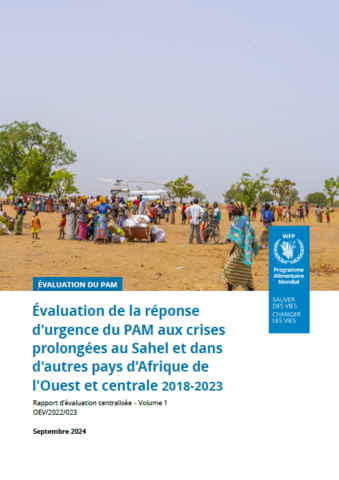
The evaluation concluded that WFP provided strong and rapid support to affected populations while supporting local, national and international actors. Coverage levels were sustained, but less food delivered. WFP also supported the collective humanitarian response. Despite effective implementation, WFP could only make limited contributions to the food security of populations affected by emergencies. It was also difficult to effectively support the recovery and resilience of conflict-affected populations in an increasingly challenging context. WFP demonstrated its ability to innovate and invest in systems that support its emergency response in increasingly complex environments. WFP's access strategies were effective in a context of politicized humanitarian space, but humanitarian principles insufficiently guided decision making. WFP has highlighted its added value to help expand its strategic partnerships but partnerships with local non-governmental organizations can still be maximized.
